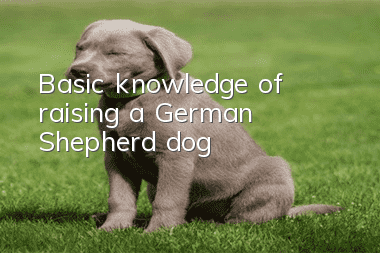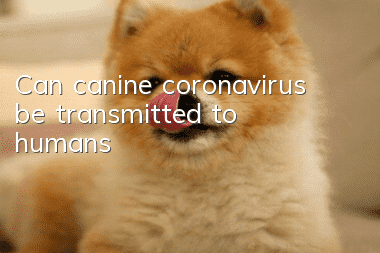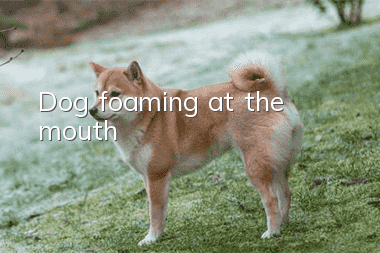Basic knowledge of raising a German Shepherd dog

Before deciding to buy a German Shepherd, the first thing to consider is whether you have enough time to take care of the German Shepherd and whether there is a kennel to house the German Shepherd. For puppies, a small quilt must be placed at the bottom of the dog house in winter. Because the puppy's body is not yet able to create enough warmth to keep out the cold. Some friends said: "Puppy, when I get home, it keeps barking." This is inevitable. It left its parents and siblings and came to a strange environment, so of course it felt scared and lonely. If the owner can stay with the puppy frequently during the day, it will soon feel a sense of belonging and find its place in the new environment. When the puppy stays in the dog room, give it some toys, such as tennis balls, dog chews, etc., so that it does not feel lonely. Think about it, when it wakes up and finds that there is nothing around it except the four dog house walls, then what else can it do if it doesn’t bark?
Urinary and defecation problems
Novices must not expect that the puppy will be able to handle its own defecation when they get home. This is impossible because the puppy's bladder is not yet mature and cannot withstand the pressure. This can only be induced, not scolded. But you find that the puppy seems unsteady, as if it is looking for something. At this time, you have to induce it to go to a designated place. After a period of time, it will get used to going to that place. Note here: 1. Don’t expect that if you hand it over once or twice, it will get used to it. 2. If you pull it in a place other than the designated place, wash it with bleach. Get rid of its urine smell.
Dog food theory
German shepherds are not only meat eaters, but more importantly predators. It not only eats meat, but also internal organs. The growth of German Shepherd dogs requires important nutrients, minerals and vitamins are indispensable elements. Their deficiency can cause developmental disorders and metabolic problems. Minerals, especially comprehensive elements: calcium, phosphorus, sodium, magnesium, and trace elements, such as iron, copper, manganese, magnesium, and lead. and various vitamins. Bones are the best mineral supplement element, but bones are difficult to digest. Friends who have time can make soup for dogs. Therefore, dog food should be changed frequently to achieve nutritional balance. In order to provide adequate nutrition for growing puppies, puppies under 5 months old should be fed 3-4 meals a day. 2-3 meals a day from 6 months to 12 months. One daily staple food for adult dogs. Meat is the best food, containing protein, carbohydrates, minerals and trace elements. Puppies that are 8 weeks old can be fed meat. Note that the meat should be in large pieces, because pulling and chewing can exercise the puppy's head, especially its teeth. On the contrary, small pieces of meat can block the puppy's esophagus, causing suffocation.
Puppies should not be fed too full. When the puppy's stomach is empty, it is only the size of a coin. Feeding too much can lead to indigestion and diarrhea at worst, and death on the spot at worst. So don’t kill your puppy just because you are tired of loving it. When a puppy arrives in a new environment, it cannot change its original food immediately. Otherwise it will cause diarrhea. Furthermore, after the puppy arrives at its new home, it willDon't come from somewhere else. Give plenty of water first and don’t feed dog food blindly. Adequate drinking water can overcome the phenomenon of puppies being acclimatized. . Many friends have said, "Puppies have diarrhea as soon as they get home, and they are sick dogs." After reading this article, I hope there will be no more novices who blindly shift the responsibility to others.
Puppy health and epidemic prevention
Vaccination is an indispensable part of breeding. Injections can be started from six to eight weeks old, then a supplementary injection every four weeks, and then another injection every four weeks, and then every year. "Rabies vaccine" is given after all other vaccines have been injected, once when the puppy is about 16 to 18 weeks old, and once a year thereafter. Vaccination and rabies vaccination cannot be given at the same time. Note: Vaccination should be done when the puppy is healthy. And before completing the 3 injections of vaccine, special attention should be paid to the health of the puppy, and it is best not to bathe. Regarding this bathing issue, I would like to make a special point. Many newbies find that the puppy feels smelly and dirty as soon as they come home, so they wash it immediately After a bath, the puppy will catch a cold, have a fever, and then see the King of Hell. Remember, don’t bathe the puppy as soon as he comes home. Resist it! From my personal experience, I don’t bathe the puppy before he has received 3 shots of vaccine. Do not let the puppy come into contact with other small animals. Because the vaccine cannot be fully established until the third dose of the vaccine, the puppy's body can fully establish the immune system. Other animals themselves carry a lot of bacteria, but they do not suffer from the disease just because they are immune.
- Dogs are not clean after two months of menstrual period
- How to deal with the mattress after the dog wets the bed
- Why doesn't a dog poop?
- The dog keeps shaking its head. Dog plague
- The dog keeps grunting and trembling a bit
- Top 10 dog IQ rankings. Is your dog among these?
- Does King Charles Spaniel shed hair? Normal dogs will shed hair!
- Can dogs eat corn? Corn itself is not harmful to dogs!
- Can dogs eat shrimp? These are seafood, so don’t feed them anymore!
- Analysis of the reasons why dogs wet the bed. Do they wet the bed just because they are on their menstrual period?



